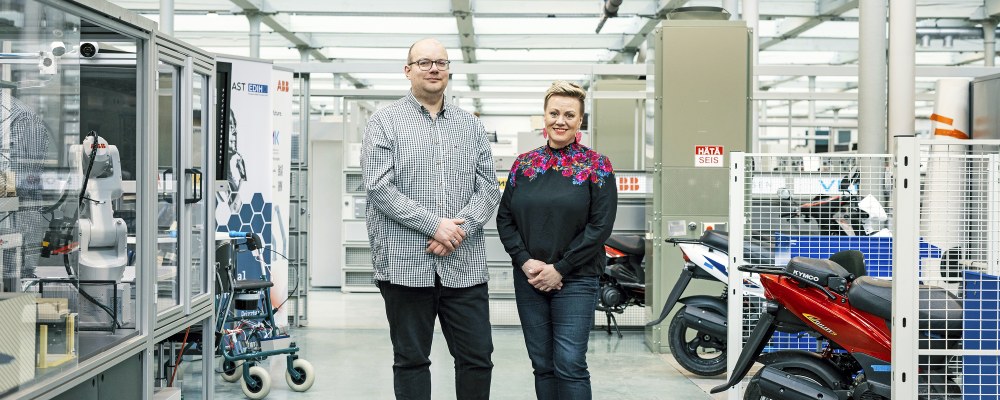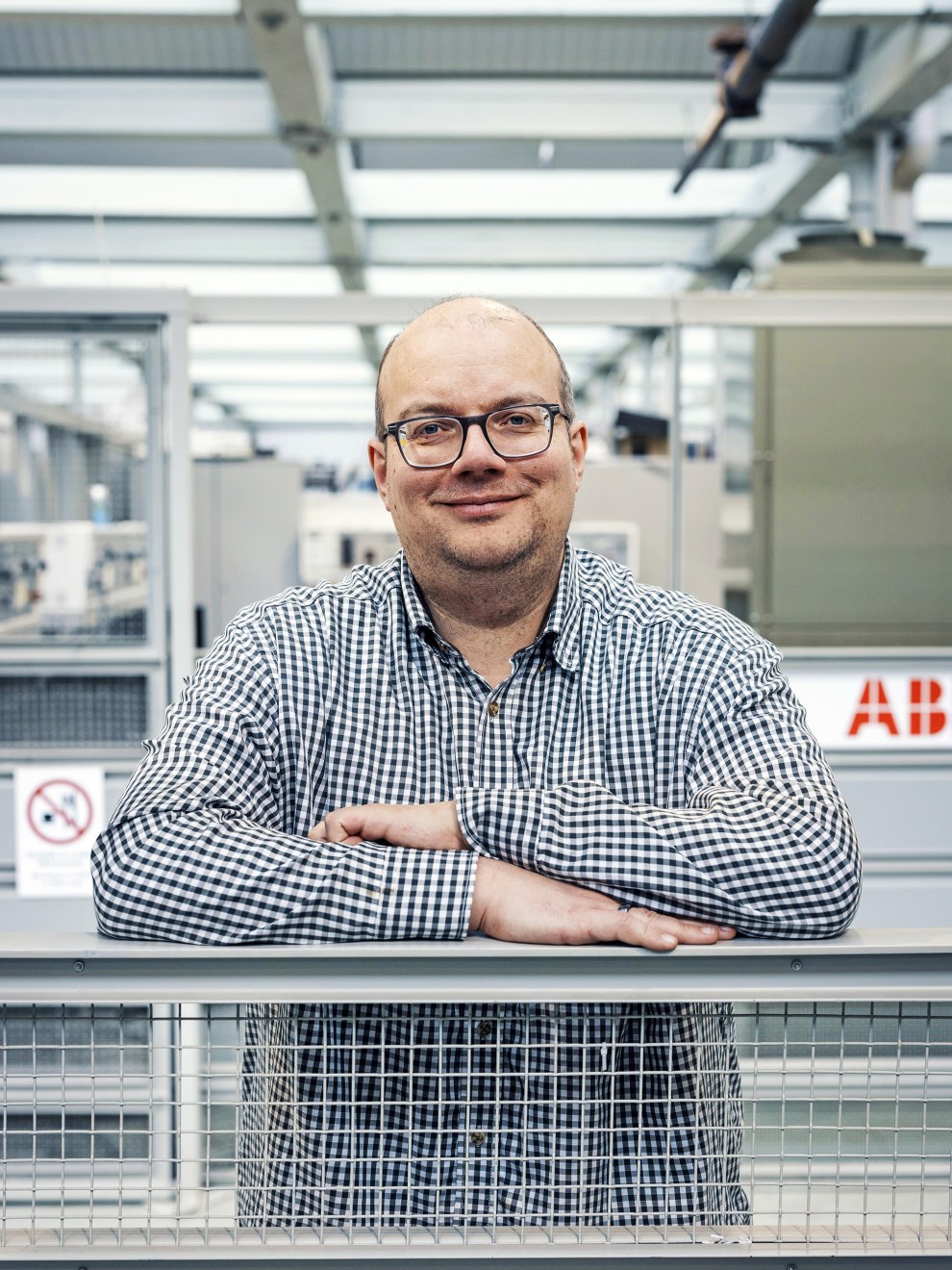
The different parties and organizations hold a joint Teams discussion every week, which lasts half an hour.
These discussions include representatives from Vaasa’s six higher education institutions, the City of Vaasa, TE services and the Talent Coastline network run by the ELY Center.
The discussions focus particularly on how to address the skills shortage and what to do to attract more international talent.
“We tell each other what kind of activities we have going on and share success stories. The aim of the discussions is to make sure that our efforts don't overlap,” says Hanna Turpeinen, University of Vaasa’s Talent Hub Manager.
The weekly meeting is just one example of how the various parties active in the area want to develop the Vaasa region together.
In the Vaasa region, public authorities are not the only ones conducting close cooperation.
Businesses are also closely involved in the cooperation. They see cooperation with higher education institutions as a way to secure their supply of workforce and discover new innovations.
The cooperation is based on the idea, shared by everyone, that we can achieve greater things together than alone.
Equipment donated by businesses
The results of the cooperation conducted between companies and universities in the Vaasa region can be seen in the high-tech center Technobothnia. Established in 1996, the premises contain equipment donated by local companies.
Researchers can use the equipment for their research. Businesses have also helped plan the contents of certain courses.
Students from the three nearby higher education institutions can attend the courses: those from the University of Vaasa, the Vaasa University of Applied Sciences and the Swedish-language Novia University of Applied Sciences.
“This also gives students the opportunity to get to know students from different higher education institutions,” says Philipp Holtkamp, Senior Specialist in Innovations and Ecosystems at the University of Vaasa.
Holtkamp says that students can also experiment and “play” with some of the equipment on their own. Students can freely program and test a miniature model of an automated warehouse, for example.
All this helps students to find employment more easily.

Caption: Philipp Holtkamp, Senior Specialist in Innovations and Ecosystems at the University of Vaasa, estimates that cooperation has become even more intense over the past 4–5 years.
Cooperation is ingrained in the region’s DNA
Holtkamp and Turpeinen believe that cooperation is ingrained in the DNA of the region.
Holtkamp has not seen cooperation like that found in Vaasa anywhere else in Finland, even though having seen the country from many different perspectives. Holtkamp has previously worked as a researcher at the University of Jyväskylä, and in the area of innovation and development at Wärtsilä for four years.
“The scope of cooperation in Vaasa is very unique. It gives students the opportunity to work with real equipment and challenges.”
The idea behind the various measures is to allow students to transition from studying to working life as smoothly as possible.
Holtkamp feels that, from the university’s point of view, students benefit most from the cooperation. Companies and municipalities in the area benefit from the cooperation as well, as students who stay in the region after their studies become new residents.
International experts are needed
Holtkamp estimates that cooperation between parties active in the Vaasa region has become even more intense over the past 4–5 years. The reason for this is Finland’s age structure.
Finland already needs thousands of new skilled workers every year to keep businesses running at least at their current level. In the coming years, the need will grow in both businesses and the public sector.
And if the battery material plants planned to be built in Vaasa become a reality, the need will grow even more.
“If that happens, Vaasa will need thousands of new engineers.”
That is why the University of Vaasa has set a goal to increase the percentage of international degree students among all degree students to 35% by 2030. The number is only around 5% today.
“It is a big, big change,” says Turpeinen.
The University of Vaasa has already stepped up its marketing outside of Finland. As a result, the number of applicants for the master’s programs starting in the autumn has increased manifold.
“We are now seeing the results of our work,” says Holtkamp.

The Spouse Program encourages skilled workers to put down roots in Ostrobothnia
Attracting international students to Vaasa is not enough. The city also needs to be able to retain them in the region so that their expertise can be put to use.
“The master’s programs last two years. We need to be active right from the very start of the programs,” says Hanna Turpeinen.
Finding employment during one’s studies plays a key role in this. At the University of Vaasa, companies are already involved in several courses. They hold guest lectures and give students challenges to solve, for example.
Now they want to take the cooperation even further. Turpeinen says that study modules involving business cooperation will be incorporated into all international master’s programs.
The university also wants companies to offer mentoring services to students.
“The idea is to give students the necessary skills and understanding regarding Finnish working life right from the start.”
A new type of recruitment event was also held for the region’s international talent, where the skills of the participants were mapped beforehand. This mapping allowed each participant to have 2–3 face-to-face meetings with companies that could use the person’s expertise.
“The companies were extremely satisfied with the event. More will be organized in the future, but targeted at specific sectors,” says Philipp Holtkamp.
Perhaps the most interesting way to help people put down roots in Vaasa is the Spouse Program run by the University of Vaasa.
The aim of the program is to help the spouses of those who have moved to Vaasa to work or study to find a place to work or study as well, and to network with others in a similar situation.
Holtkamp has seen first-hand how companies in the region have recruited top talent from abroad, but have been unable to retain them.
“If their family is not happy here, they will not stay here for long.”
Holtkamp wants to challenge all of us to do our part to promote the recruitment and retention of foreign experts in Finland. Even if you can’t directly influence the hiring of international talent, you can at least make an effort to get to know the people who have moved here.
These actions can make a huge difference to the success of Finnish society.